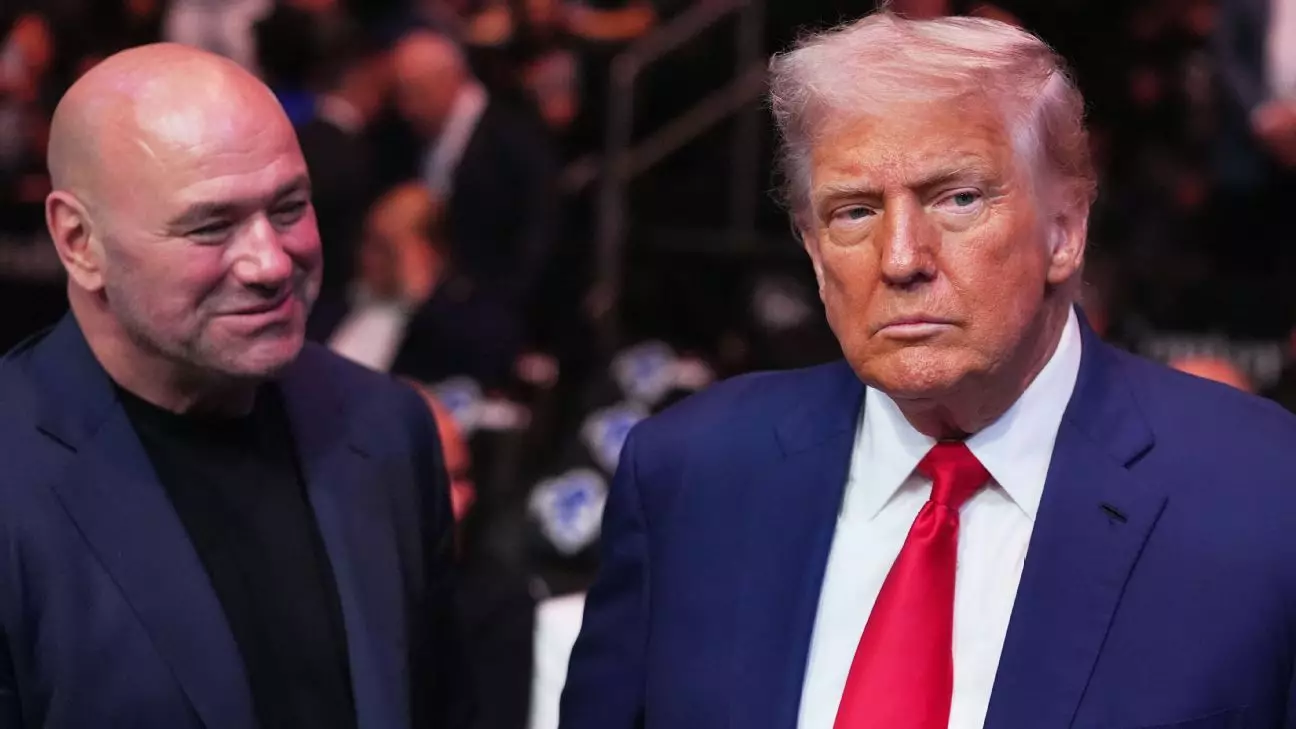In an era where national pride often finds expression through political rhetoric, President Donald Trump’s recent proposal to host a UFC fight on the White House grounds signifies a surprising fusion of sports, entertainment, and patriotism. His plan to draw thousands of spectators for a mixed martial arts event during the celebration of America’s 250th anniversary reflects a desire to create a visceral, unforgettable experience that embodies strength, resilience, and unity. By proposing a UFC fight in such a historically symbolic location, Trump aims to harness the raw emotion of combat sports to foster a sense of national pride that resonates across generations.
This idea, while bold, is not merely about spectacle; it signals a strategic attempt to redefine what patriotism looks like in the modern age. The United States, as a nation built on perseverance and innovation, deserves celebrations that match its grandeur. A UFC event, noted for its intense energy and passionate fanbase, can serve as a metaphor for American resilience—facing challenges head-on and emerging stronger. Trump’s enthusiasm for MMA and personal connections to UFC leadership suggest an effort to blend political triumph with cultural relevance, positioning such a fight as both entertainment and an emblem of the nation’s fighting spirit.
Controversy and Criticism: Navigating the Boundaries of Tradition and Innovation
However, introducing a combat sport of this nature onto the storied grounds of the White House is bound to spark debate. Critics could argue that turning a historic symbol of national unity into a venue for a sport associated with violence and spectacle diminishes the gravity of such celebrations. The White House has long been a symbol of political authority, diplomacy, and tradition; transforming its lawns into an arena for a UFC fight risks blurring these lines and raising questions about appropriateness.
Furthermore, this move might perpetuate a cultural narrative that equates patriotism solely with outward displays of strength and bravado. Opponents could contend that true patriotism manifests in constructive actions—policy, community service, education—rather than in staged spectacles. Though Trump’s recent appearances at UFC events demonstrate his enthusiasm, leveraging this sport as a national celebration invites criticism for prioritizing entertainment over solemn remembrance or meaningful reflection on the nation’s history.
The Power of Visionary, yet Debatable, National Festivities
Despite the controversy, Trump’s willingness to think outside traditional boundaries displays a desire to craft a unique narrative for America’s 250th birthday. His plans for an elaborate festival across national parks, battlefields, and historic sites celebrate the diverse tapestry of American history. Incorporating a UFC fight into this mosaic symbolizes a deliberate attempt to appeal to a broad, contemporary audience—blending nostalgia with modern adrenaline.
Yet, one must question the long-term impact of such spectacles. Can these events foster genuine patriotism, or do they risk superficiality rooted in immediate gratification? When a country’s foundational values are celebrated through fights and festivals, there’s a danger of reducing complex history to fleeting moments of entertainment. Nonetheless, Trump’s boldness underscores an underlying belief that celebrating America’s resilience and spirit can embrace all forms of expression—including the intensity of mixed martial arts.
In the end, whether viewed as inventive patriotism or provocative spectacle, Trump’s UFC proposal exemplifies a larger trend: the desire to redefine national celebrations in ways that are personal, visceral, and undeniably attention-grabbing.

